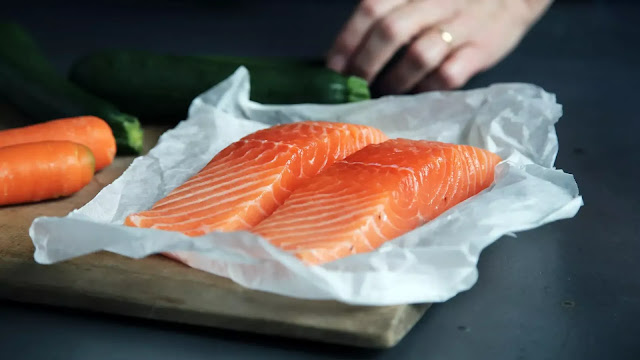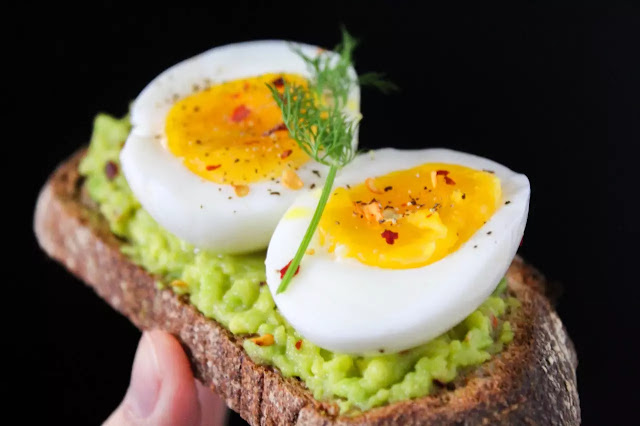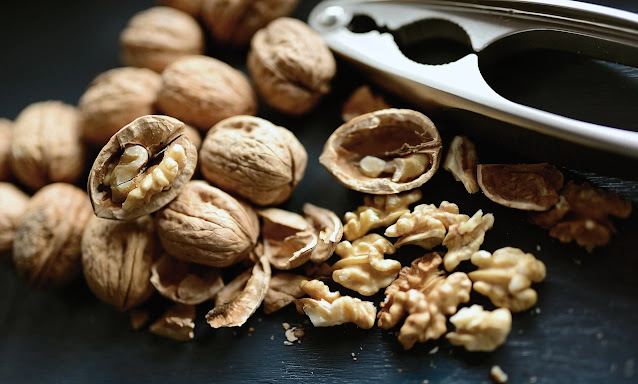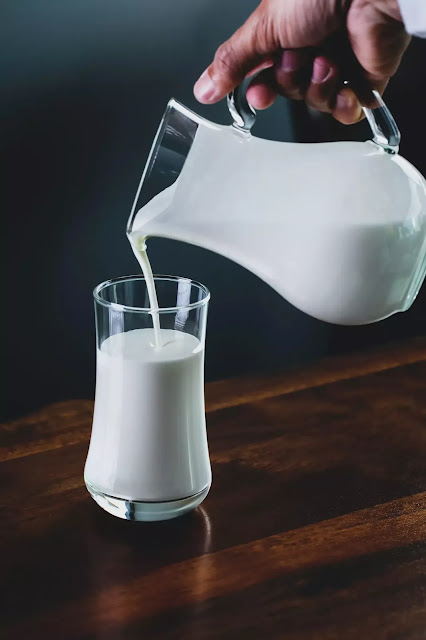Parents are always concerned about their child’s health especially brain health. Eating the appropriate foods can help your child grow his or her brain and improve their general health. The science for consuming certain meals to improve brain function is ambiguous. There are, however, some foods that can aid in a child’s brain development and improve IQ level. A nutritious, well-balanced diet is beneficial not only to children’s bodies but also to their minds.
The appropriate nutrients can help you boost your memory, focus, and brain function. The brain, like the rest of the body, receives nutrients from the meals we eat, and the 10 “superfoods” can help children improve their cognitive abilities. Continue reading to learn more about them and how to incorporate them into their diets.
1. FATTY FISH
Fish high in omega-3 fatty acids like DHA and EPA are critical for brain development and function. Because the brain is made up of 60% fat, your body employs omega-3 fatty acids to help with neurological development and to protect the brain against memory loss and decline. According to studies, those who eat a diet high in these fatty acids have superior memories and perform better on mental abilities tests, plus these fatty acids can help children develop their cognitive skills if they consume enough of them. Trout, salmon, mackerel, herring, and sardines are all excellent choices.
Ideas for Serving
- Prepare wholegrain bread for salmon sandwiches.
- Fish should be grilled and served with a dipping sauce.
- Make sushi out of it.
2. EGGS
Eggs are high in vitamins and other minerals that are beneficial to the brain. Choline is a critical component of cell membranes that the body requires to make vital neurotransmitters and cell membrane signalling. It can be found in egg yolks. It has been demonstrated to play an important function in a foetus’ or infant’s brain development. Choline has been demonstrated to increase brain function and memory development in studies.
Eggs are also a good source of protein, and they will keep your toddler fuller for longer. For a quick and healthy breakfast before school, try a homemade breakfast burrito packed with vegetables.
Ideas for Serving
- Serve scrambled eggs on bread.
- To create an egg, drop soup, whisk together all of the ingredients in a seasoned broth.
- Prepare a fresh vegetable Omelette.
3. MEAT THAT IS LOW IN FAT (LEAN)
Iron insufficiency is sometimes linked to cognitive development and attention deficits, and iron insufficiency in meat protein helps to give oxygen to the brain. which helps youngsters stay energized and focused at school. Iron is found in lean meats like chicken and turkey, as well as seafood like tuna and shellfish. Vegetarians can receive plenty of iron from dark green leafy vegetables like spinach and broccoli, as well as beans, lentils, and legumes like chickpeas.
When iron and vitamin C are consumed together, they are more easily absorbed. Zinc, which aids in the regulation of nerve cell transmission in the brain, is abundant in lean meats. Grilled lean meat kabobs or black bean burgers are a delightful and healthy alternative to traditional hamburgers and hotdogs at your next picnic.
4. SEEDS AND NUTS
Nuts and seeds are a simple adjustment to your child’s diet that can improve brain and heart function. Protein, vital fatty acids, iron, and zinc are all abundant in them. They also include vitamin E, which may help with memory and protect against free radical damage, which can lead to mental deterioration. Walnuts, in particular, are high in omega-3 fatty acids, which aid with brain function.
Seeds’ antioxidants may also aid in the maintenance of a healthy brain. Pumpkin seeds are high in magnesium (which is necessary for learning), zinc, copper, and iron, all of which help in nerve communication. Iron deficiency can lead to poor brain function. By eating a range of nuts and seeds, your children will be able to benefit from the numerous nutrients they contain.
Ideas for Serving
- As a trail mix, combine a variety of nuts and seeds.
- Toast or spread nut butter on bread.
- Add them to your cereal or porridge for breakfast.
5. FRUITS
Vitamin C-rich fruits, such as oranges, kiwi fruit, guava, strawberries, and papaya, are excellent choices for keeping your child’s brain healthy and alert. Vitamin C in fruits has been shown in studies to protect against mental decline and promote brain function. It’s also an antioxidant that protects brain cells from free radical damage and keeps them healthy. Vitamin C has a variety of non-antioxidant activities as well. It helps facilitate the creation of neurotransmitters in the brain to promote alertness, focus, and memory by acting as an enzyme co-factor, a non-protein molecule that aids with a biological chemical reaction.
Antioxidants are abundant in fruits, particularly berries. Anti-inflammatory and antioxidant activities have been demonstrated for anthocyanins and other flavonoids found in berries. Nerve systems can be harmed by oxidative stress and inflammation. Consuming an antioxidant-rich diet can thus aid in the prevention of mental decline. Berries are high in vitamin C and other antioxidants, which can assist with memory. Berries’ seeds also include omega-3 lipids, which aid with brain function. Look for strawberries, cherries, blueberries, and blackberries; the berry’s hue indicates how much nourishment it contains.
Berries can be used in smoothies or as healthful snacks or desserts on their own.
Ideas for Serving
- Serve as a breakfast juice.
- Cut into slices and serve with a fruit salad.
- Fruit can be added to morning cereals and oatmeal.
- Combine with other fruits and vegetables in a smoothie.
6. VEGETABLES
Antioxidants are abundant in vibrant colours vegetables such as tomatoes, carrots, pumpkins, sweet potatoes, dark leafy greens, and cruciferous vegetables such as broccoli and cabbage. They shield our bodies and minds from free radical damage and help to keep brain cells active. Folate, which is required for cell repair and maintenance as well as DNA formation, is abundant in leafy greens like spinach. Vegetables are also an important element of a well-balanced diet, so make sure your kids eat enough of them every day.
Remember, It’s simple to include vegetables in spaghetti sauces or soups.
Baked sweet potato wedges or easy-to-snack veggies like sugar snap peas or baby carrots can be substituted for potato or corn chips in your child’s lunch.
Ideas for Serving
- If your youngster is a finicky eater, combine vegetables and fruit in a smoothie.
- Add to savoury rice or noodle recipes.
- Cut raw vegetables into small pieces and serve with a healthy dip.
7. OATS/ OATMEAL’S AND WHOLE GRAINS
Fibre-rich foods like oats and whole grains keep kids feeling full and engaged for longer. They aid in the regulation of glucose released into the bloodstream, reducing blood sugar spikes that lead directly to energy and concentration dumps. Whole grains and oats are also high in minerals like vitamin E and B, potassium, and zinc, which can help your child’s brain function at its best and prevents them from snacking on bad food.
Almost any toppings, such as apples, bananas, blueberries, or even almonds, can be used as a foundation for oatmeal
Ideas for Serving
- Serve heated oats with blueberries for breakfast in the morning.
- When cooking, use whole grain pasta, noodles, and bread.
- Instead of rice, serve wholegrain couscous with main courses.
8. PEANUT BUTTER
Peanut butter is a favourite among children, which is fortunate because it is high in vitamin E, an antioxidant that preserves neuronal membranes. It also contains thiamin, which is beneficial to the brain, as well as glucose, which provides energy.
Peanut butter is an excellent dip for fruits like bananas and vegetables like celery.
Ideas for Serving
- Make a sandwich with lots of peanut butter and mashed bananas.
- Put peanut butter in your hot chocolate, stir it around and ready for you.
- You will love peanut butter cookies if you try them.
9. YOGURT & MILK
B vitamins are essential for the development of brain tissue, neurotransmitters, and enzymes, and dairy products are high in these elements. Protein and carbs for the brain can be found in low-fat milk or yoghurt. Dairy is also high in vitamin D, which adolescents and teenagers require in greater quantities than adults.
Low-fat cheese sticks are a wonderful source of calcium and make a fantastic on-the-go snack.
Ideas for serving
- Your coloured jam is ready with fruit-on-the-bottom yoghurt.
- Toss in some toasted chips and enjoy.
- Make a milkshake of your choice and drink it.
10. BEANS ARE A LEGUME
They are beneficial to children’s brains since they include energy in the form of protein, complex carbohydrates, fibre, vitamins, and minerals. They have the ability to maintain a high level of energy. Kidney and pinto beans are excellent choices since they contain more omega-3 fatty acids than other bean varieties, which are essential for brain development and function.
Beans can be used as a salad topping, lettuce wrap filler, or even spaghetti for a more nutritious supper.
Ideas for Serving
- When refried beans are placed between eggs and guacamole, they’re even better.
- To make a vegan alfredo sauce, white beans are ideal.
- Prepare your own Flourless Black Bean Brownies and savour them.
A balanced, diversified diet is the best approach to set your children up to boost. While eating some of these meals can help you get through difficult exams or examinations, it’s equally important to avoid meals that are harmful to your brain’s health. Anything cooked and heavy in sugar or trans fats can impair memory, concentration, and focus, therefore sugary snacks and fast meals should be avoided as much as possible.
Prepare foods such as lean meats, fresh fruits and vegetables, and nutritious grains to provide slow-release energy. These foods will boost your child’s brain and overall health, as well as make it easier for them to get through their everyday tasks.





